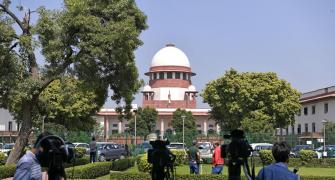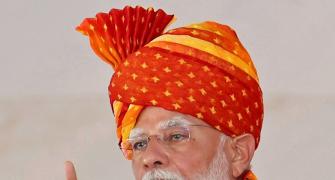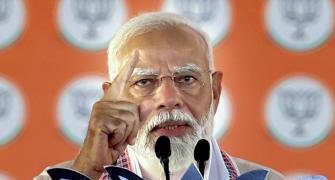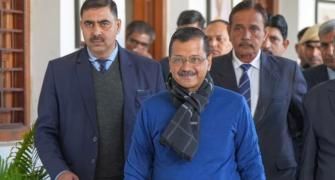Even as Iran's deal with India to supply 5 million tonnes of liquefied natural gas annually from 2009 hangs fire over the pricing issue, both countries have expressed solidarity on the Iran-Pakistan-India pipeline.
This comes amid reports that Pakistan and Iran have agreed to lay a bilateral gas pipeline with 33 per cent higher supplies to Islamabad.
India was very much a part of the tri-nation pipeline project and the three countries might decide to build a parallel pipeline as the demand grew, Iranian Deputy Oil Minister Hadi Nejad Hosseinian, here to meet Petroleum Minister Murli Deora, said.
He added that Tehran had set July as the deadline to sign a deal for the over $7-billion project, failing which it would pursue bilateral exports to Pakistan.
Deora said India was not under any US pressure on the issue - "We are serious about this. Not only me, the prime minister is also serious. He even made a statement in Parliament during the Pakistan oil minister's visit to India that the pipeline is for peace and progress."
On the LNG deal, Hosseinian said Iran was open to ironing out the differences over pricing and implementation. "There is a difference of opinion over whether the LNG contract signed last year is binding. India is opposing our view that we are not legally bound to supply LNG as per the contract," he said.
Saying that the deal to supply LNG for 25 years signed in June 2005 needed to be ratified by National Iranian Oil Company, Hosseinian added that now Iran wanted changes in the contract terms.
Petroleum ministry officials later said while India wanted Iran to honour the price decided in the original contract, Iran wanted a higher price. Crude price was around $30 a barrel in 2005. At present, it is touching $70 a barrel.
The Iranian deputy oil minister said both India and Iran were seeking legal advice on whether the original contract was binding on Iran. He added that Iran had earlier come up with a draft proposal which was rejected by India and Pakistan.
On the issue of building two pipelines, Hosseinian said it hinged on the demand for gas by India and Pakistan, but there was no intention of having a pipeline exclusively for one country. A pipeline will have the capacity to carry 110 million cubic metres of gas per day.
Pakistan has demanded a minimum of 30 mmscmd of gas which can be ramped up to 60 mmscmd. India, on the other hand, has asked for upto 90 mmscmd over a period of time.
Hosseinian said after five years, Iran will review the demand situation and decide on whether a second pipeline was required.








